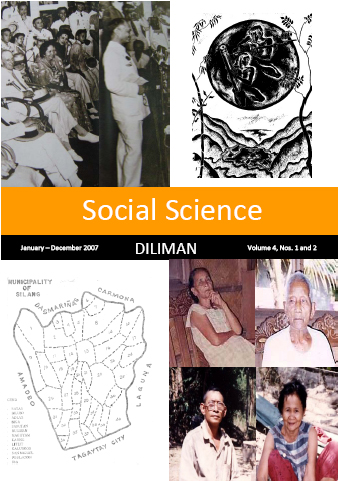SIBLING BONDING AND OTHER VALUE STRUCTURES IN THE <i>ERIHIYA</i> OF SILANG, CAVITE
Abstract
The erihiya is a genre of folklore in Silang, Cavite that relates to both folk speech and to practices. I hope to present an initial, working definition and description of the concept from the point of view of the Silang folks, beginning with the exploration of the lexical variations in form and meaning of the word itself, especially as its local definition as speech that is part of folk wisdom connotes ‘heritage,’ whereas its definition as a Spanish loan word is ‘heresy.’ Using a Structuralist approach, the discussion will analyze the significance of the erihiya within the social formation it exists in. The erihiya of Silang are reflective of values that center on kinship systems based on the binary relations between and among Self/others, others being defined as those including family, neighbors, friends, strangers, enemies, the old, the young, males, females, etc. The erihiya, in so defining the roles of these participants in the social formation, make the oppositions between good and bad, life and death, near and far, familiar and strange, indigenous and colonial come to play. Among examples presented, the erihiya for sibling bonding which is indigenous and still practiced by members of the social group is given value as it concretizes how kinship structures are established, maintained, and valued in local Silang society.
Published
2009-01-27
Issue
Section
Articles
Keywords
folk speech and practices, folklore, heritage, heresy, values, kinship structures


